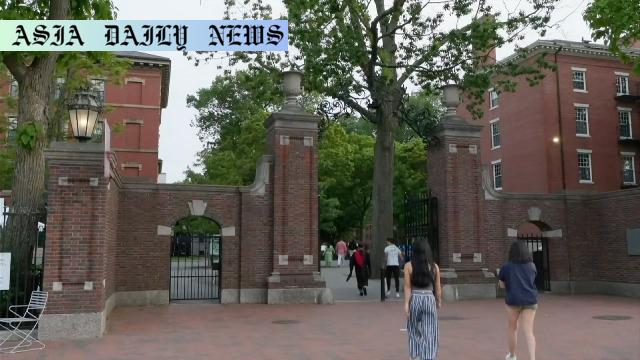Student Visa: The Trump administration resumes student visa interviews with stricter social media vetting to ensure security.
- Student visas applications are now open, with increased interview scrutiny.
- New guidelines demand applicants’ social media to be public for vetting.
- Additional checks aim to identify security threats or hostile tendencies.
- Harvard University faces restrictions on foreign student enrollments.

US Resumes Student Visa Interviews with Tighter Screening
In a notable move, the Trump administration has announced the resumption of student visa interviews after a temporary halt. This comes in conjunction with new guidelines aimed at enhancing the vetting process for international students seeking to study in the United States. Applicants will now be subjected to a more intensive screening procedure, with a particular focus on their social media activities.
A senior US State Department official emphasized that the upcoming vetting process will be both comprehensive and stringent. Notably, applicants are now mandated to adjust their social media profiles to the ‘public’ setting, enabling consular officers to delve into their online activities. This is aimed at identifying and screening for individuals harboring hostile attitudes toward America’s core values, institutions, or principles, alongside those potentially linked to terrorism or other security threats.
Increased Security Measures and Policy Changes
According to US media reports, tighter scrutiny will revolve around applicant profiles that hint toward any form of antisemitic sentiments, violent ideologies, or illegal activities. Steps are in place to ensure that threats to US national security or unlawful behaviors such as antisemitic harassment or violence are addressed proactively. Furthermore, the administration has announced that these refined vetting procedures will be implemented swiftly, within five working days.
As the Trump administration focuses more on protecting US interests, the policy shift has drawn attention due to its implications for international students. Harvard University, one of the United States’ leading institutions, has also faced restrictions. These bans stem from the alleged promotion of ideologies that conflict with American values and incite hostility.
Balancing National Security and Educational Opportunities
While these revamped measures have sparked mixed reactions globally, it remains evident that the US government is intent on balancing national security with educational diplomacy. By requiring transparency in social media profiling and conducting rigorous background checks, the administration aims to filter candidates comprehensively while safeguarding the nation’s welfare.
For aspiring students and families prepared to endure the rigorous vetting process, it will remain critical to align their applications with the established guidelines. Institutions and stakeholders will also need to work more closely to ensure compliance and minimize disruption to foreign enrollment trends.



Commentary
The Increasing Complexity of Student Visa Procedures
The Trump administration’s decision to resume visa interviews while implementing stricter social media vetting is both a pragmatic and polarizing move. On one hand, it acknowledges the importance of education-driven diplomacy and student exchange programs that have fostered global relationships. However, on the other hand, critics argue that these measures introduce barriers and stress for genuine applicants, leaning toward profiling rather than inclusion.
Implications for Global Students and Academia
For global students aspiring to pursue higher education in the United States, this development signals increased scrutiny and potential hurdles during the application process. Educational institutions, especially those relying on international enrollments, may face significant disruptions. Questions rise about the unintended consequences of these policies, particularly as the US battles stiff competition from other nations welcoming global talent with open arms.
Balancing National Security with Inclusivity
While national security cannot be undermined, the focus on strict vetting may unintentionally alienate genuine, law-abiding applicants who enrich academia. Instead, a more balanced approach that embraces both stringent checks and transparent processes would bolster the nation’s commitment to welcoming global talent. Only time will reveal how effectively these new policies maintain security without pushing away deserving individuals who dream of studying in the US.